Best Non GMO Formula
57 hours of research 7 minute read

With the growing concern over genetically modified organisms (GMOs) in our food supply, many parents are seeking out non-GMO options for their little ones. We understand that choosing the right formula can be a daunting task, but we hope that this ultimate guide will provide you with the information you need to make an informed decision.
What is GMO?
GMO stands for "genetically modified organism". It refers to an organism whose genetic material has been altered in a way that does not occur naturally through mating or natural recombination. This is typically done through genetic engineering techniques that involve the insertion, deletion, or modification of specific genes.
The purpose of genetically modifying organisms is to create new traits or characteristics that are not naturally present in the organism. This can be done to improve the organism's productivity, resistance to pests or disease, or to make it more suitable for certain environmental conditions
GMOs are widely used in agriculture, with genetically modified crops such as corn, soybeans, and cotton being grown in many countries around the world. There are also genetically modified animals, such as salmon and pigs, that have been developed for food production.
What Does GMO Mean In Infant Formula?

GMO in infant formula refers to the potential presence of genetically modified ingredients, specifically in the form of additives or supplements used to enhance the nutritional profile of the formula. These additives may be derived from genetically modified crops such as soy, corn, or sugar beets.
Many infant formula manufacturers use genetically modified ingredients in their products, as these ingredients are often less expensive and more readily available than non-GMO alternatives. However, some parents may be concerned about the potential risks associated with consuming GMOs, especially for infants who are still developing and may be more vulnerable to the effects of these ingredients.
As with all food products, infant formula that contains genetically modified ingredients is regulated and must meet strict safety standards before it can be sold to consumers. Manufacturers of infant formula are required to follow strict guidelines and regulations to ensure that their products are safe and provide the necessary nutrition for infants. This includes ensuring that any additives or supplements used in the formula, including those derived from GMOs, are safe for consumption and meet regulatory requirements.
Non-GMO Formula
Baby formulas that are labeled as "Non-GMO" are specifically formulated to exclude any ingredients that have been genetically modified through the use of genetic engineering techniques. This means that the ingredients used in these formulas have not had their DNA artificially altered in any way.
It's important to note that the labeling of a formula as "Non-GMO" does not necessarily mean that it is organic or completely free from all artificial ingredients. However, it does mean that the formula is free from genetically modified organisms, which is important to some parents who want to avoid these ingredients in their baby's food.
How can I tell if a formula is Non-GMO?
If you are looking for a non-GMO formula for your baby, there are several ways to identify them. Here are a few things to look for:
- Check the label: The easiest way to determine if a formula is non-GMO is to look for the non-GMO label on the packaging. This label is typically displayed prominently on the front or back of the container, and it indicates that the formula is made with non-genetically modified ingredients.
- Look for organic certification: Organic certification in the EU also indicates that a formula is non-GMO. The EU Organic label guarantees that the product contains at least 95% organic ingredients, and by definition, organic products cannot contain GMOs.
- Read the ingredients list: Even if a formula doesn't have a non-GMO label or organic certification, you can still check the ingredients list to see if it contains any genetically modified ingredients. Some of the most common genetically modified ingredients in infant formula include corn, soy, and sugar, so look for these on the label. If the label specifies that these ingredients are "non-GMO" or "organic," then the formula is likely non-GMO as well.
- Do your research: Before you purchase a formula, do some research on the manufacturer's website or contact their customer service department to ask about their non-GMO policies and practices in the EU. This will give you a better idea of how committed they are to using non-GMO ingredients that comply with EU regulations.
Top Non-GMO and Organic Formula brands
1. HiPP
HiPP offers a range of organic and non-GMO formulas made with high-quality ingredients such as organic skim milk, organic whey, and organic vegetable oils. They also offer a range of age-specific formulas for infants and toddlers.
2. Holle
Holle is another well-known organic and non-GMO formula brand that offers a range of formulas made with organic milk, organic vegetable oils, and other high-quality ingredients. Their formulas are free from artificial flavors, colors, and preservatives. Holle is considered as organic ++, because formula ingredients are coming from biodynamic farms.
3. Lebenswert
Lebenswert is a popular organic and non-GMO formula brand that offers a simple, yet high-quality formula made with organic milk and no added sugars. Lebenswert has achieved Bioland certification due to its 100% organic ingredients.
4. Kendamil
Kendamil is a UK-based brand that offers a range of organic and non-GMO formulas made with locally-sourced, organic ingredients. Their formulas are made with whole milk and contain no gluten, synthetic preservatives, palm oil or fish oil.
Other Popular Non-GMO Formulas
- Enfamil Neuropro Non-GMO Powder Infant Formula
- Similac 360 Total Care Non-GMO Infant Formula Powder
- Earth's Best Non GMO Soy Formula
- Similac Toddler Formula Non GMO
Most Popular Non-GMO Formula
✓ Contains Probiotics & Prebiotics
✓ No sugar, no corn syrup, no soy
✓ No starch
✓ HiPP's most popular formula
Check PriceHiPP Dutch is a highly sought-after Non-GMO formula known for its stringent quality standards and use of organic ingredients. It is carefully crafted to meet the nutritional needs of infants, providing them with essential nutrients for healthy growth and development.
- HiPP Dutch Stage 1: for babies aged 0 - 6 months of age
- HiPP Dutch Stage 2: for babies aged 6 - 12 months of age
- HiPP Dutch Stage 3: for toddlers aged 12 months and up
- HiPP Dutch Stage 4: for toddlers aged 24 months and up
✓ Clean formula ingredients
✓ No palm oil
✓ Contains DHA, & ALA
✓ Popular for babies allergic to cow's milk
Check PriceHolle Goat Formula is a popular choice for parents looking for a Non-GMO alternative to cow's milk-based formulas. It is made from organic goat milk and contains essential vitamins, minerals, and fatty acids that support the well-being of infants with a gentle and easily digestible formulation. It is ideal for infants who have allergies and need easier formula for the digestive system.
- Holle Goat Stage Pre: for infants aged 0 - 6 months of age
- Holle Goat Stage 1: for infants aged 0 - 6 months of age
- Holle Goat Stage 2: for babies aged 6 - 12 months of age
- Holle Goat Stage 3: for toddlers aged 10 months and up
- Holle Goat Stage 4: for toddlers aged 12 months and up
✓ Whole milk as a natural mammal fat source
✓ Plant-based DHA and ARA
✓ No soy and no palm oil
✓ No sugars and synthetic preservatives
Check PriceKendamil Organic is a renowned Non-GMO formula trusted by parents worldwide. It is made using full cream milk from grass-fed cows, ensuring a rich source of nutrients and natural fats. This formula is free from palm oil and is carefully crafted to support babies' delicate digestion and overall health.
- Kendamil Organic Stage 1: for infants aged 0 - 6 months of age
- Kendamil Organic Stage 2: for babies aged 6 - 12 months of age
- Kendamil Organic Stage 3: for toddlers aged 12 months and up
✓ Contains Probiotics & Prebiotics
✓ No sugar or corn syrup
✓ No soy
✓ HiPP's original formula
Check PriceHiPP German is a highly regarded Non-GMO formula that adheres to strict organic farming practices. It is made with carefully selected ingredients to provide infants with a balanced diet. This formula is known for its comprehensive nutritional profile and is suitable for babies with specific dietary needs.
- HiPP German Stage Pre: for infants aged 0 - 6 months of age
- HiPP German Stage 1: for infants aged 0 - 6 months of age
- HiPP German Stage 2: for babies aged 6 - 12 months of age
- HiPP German No Starch Stage 2: for babies aged 6 - 12 months of age
- HiPP German Stage 3: for toddlers aged 10 months and up (Follow On formula)
- HiPP 1+: for toddlers aged 12 months and up
- HiPP 2+: for toddlers aged 24 months and up
✓ Clean formula ingredients
✓ Demeter biodynamic certified
✓ Contains natural whey, DHA, & ALA
✓ Holle's most popular cow formula
Check PriceHolle Bio is a widely recognized Non-GMO formula known for its commitment to organic ingredients and sustainable farming methods. It is made from premium-quality Demeter-certified milk and contains essential nutrients to support the healthy development of babies. This formula is gentle on the stomach and suitable for sensitive little ones.
- Holle Bio Stage Pre: for infants aged 0 - 6 months of age
- Holle Bio Stage 1: for infants aged 0 - 6 months of age
- Holle Bio Stage 2: for babies aged 6 - 12 months of age
- Holle Bio Stage 3: for toddlers aged 10 months and up
- Holle Bio Stage 4: for toddlers aged 12 months and up
How is a Non-GMO formula made?
Here is a general overview of how non-GMO formulas are made:
- Sourcing non-GMO ingredients: The first step in making a non-GMO formula is to carefully source all of the ingredients to ensure that they are non-GMO. This involves working with farmers and suppliers who can provide documentation that their ingredients are non-GMO.
- Ingredient testing: After the ingredients are sourced, they are tested to ensure that they are non-GMO. This can involve using a variety of testing methods, including DNA testing and other analytical techniques.
- Formulation: Once all of the non-GMO ingredients have been sourced and tested, they are carefully combined in a specific formula to meet the nutritional needs of infants. This formula may include a variety of ingredients, such as milk, carbohydrates, proteins, and fats.
- Manufacturing: The non-GMO formula is then manufactured in a facility that follows strict quality control standards to ensure that the product is safe and consistent. The manufacturing process may involve mixing, heating, and sterilizing the ingredients before they are packaged for distribution.
- Quality control: Throughout the manufacturing process, the non-GMO formula is subject to rigorous quality control measures to ensure that it meets all safety and nutritional standards. This may include testing the formula for purity, nutritional content, and consistency.
What are the regulations for Non-GMO labeling?
In the European Union (EU), strict regulations are in place to ensure that consumers are provided with accurate information about the presence of GMOs in food and feed products. All food and feed products containing or consisting of GMOs must be labeled as such. This includes products that contain GM ingredients or are produced using GM technology.
To make things even more transparent, there is a threshold for the unintentional presence of GMOs in food and feed products. Products that fall below this threshold can be labeled as "not containing GMOs" or "GMO-free". The labeling requirements apply to all products intended for sale or use in the EU, regardless of their origin.
The European Food Safety Authority (EFSA) is responsible for assessing the safety of GMOs and providing scientific advice to the European Commission and EU member states. The EFSA also plays a role in the authorization of GMOs for use in food and feed products within the EU.
So, if you're looking for non-GMO products, be sure to look for the appropriate labeling. In the EU, you can trust that if a product is labeled as non-GMO, it has been produced without the use of genetic engineering.
Why Choose Non-GMO formulas
Over the past few years, more and more parents have become worried about the possible dangers of GMOs, particularly when it comes to their babies' health. As a result, many of these parents have opted for non-GMO formulas as a safer and healthier option for their infants. We'll take a closer look at the reasons why you should consider choosing non-GMO formulas for your little one.
Concerns about potential health risks
While there is no definitive evidence that GMOs are harmful to human health, some people are worried about the long-term effects of consuming genetically modified foods. Non-GMO formulas provide an alternative for those who prefer to avoid GMOs.
Allergies and sensitivities
Some babies may have allergies or sensitivities to certain proteins or other ingredients that are commonly genetically modified. Non-GMO formulas can help avoid these potential allergens.
Environmental impact
Genetically modified crops have been associated with negative environmental impacts, such as the development of herbicide-resistant "superweeds" and the loss of biodiversity. By choosing non-GMO formulas, you can support sustainable agriculture practices that minimize the use of harmful chemicals and preserve the natural ecosystem.
Ethics behind Non-GMO formula
Some consumers choose non-GMO formulas based on ethical considerations. The use of GMOs in agriculture has been linked to corporate control of the food supply, as a handful of large companies dominate the market for genetically modified seeds. By choosing non-GMO formulas, consumers can support smaller, independent farmers who use traditional farming methods and promote biodiversity. Additionally, some people believe that genetic modification of organisms is unethical and goes against the natural order of life. Non-GMO formulas provide an option for those who share these concerns.
Factors to consider when choosing a Non-GMO Formula
Ingredients
When choosing a non-GMO formula for your baby, there are several factors to consider. Here are a few important ones:
Non-GMO Ingredients
Look for a formula that contains high-quality, natural ingredients, and avoid those with artificial additives or preservatives. Check the ingredient list carefully to ensure that the formula does not contain any genetically modified organisms.
Age appropriateness
Make sure the formula you choose is appropriate for your baby's age. Infant formulas are typically classified as Stage 1, Stage 2, or Stage 3, and sometimes even Stage 4 with each stage corresponding to a different age group and nutritional needs.
Price
Non-GMO formulas can be more expensive than conventional formulas, so consider your budget when making a decision. Keep in mind that while non-GMO formulas may cost more upfront, they may save you money in the long run by potentially avoiding health issues associated with GMO consumption.
Availability
Not all non-GMO formulas may be readily available in your area or at your preferred store. Check with local retailers or online retailers to see which non-GMO formula options are available and compare prices and availability.
What Is Organic Baby Formula?

Organic baby formula is a type of baby formula made with organic ingredients. This means that the ingredients used in the formula are grown and processed without the use of synthetic pesticides, fertilizers, or genetically modified organisms (GMOs). Organic baby formula is produced using milk from cows that are fed organic feed and raised without the use of growth hormones or antibiotics.
What is the difference between regular, non-GMO, and organic baby formula?
The difference between regular, non-GMO, and organic baby formula lies in the ingredients used in their production. Regular baby formula contains ingredients that are typically sourced from conventional farming practices, which may include the use of synthetic fertilizers, pesticides, and GMOs. Non-GMO baby formula is made without the use of genetically modified organisms, but may still contain other ingredients sourced from conventional farming practices. While non-GMO formulas are not necessarily organic, they still provide a safe and healthy alternative for parents who are concerned about the potential risks of GMOs.
On the other hand, Organic baby formula is made with ingredients that are sourced from organic farming practices and are free from synthetic fertilizers, pesticides, and GMOs. Organic baby formula also prohibits the use of certain artificial additives and preservatives that are commonly found in conventional baby formula.
Overall, organic baby formula is considered to be a healthier and more environmentally friendly option compared to regular or non-GMO baby formula. Ultimately, the choice between regular, non-GMO, and organic baby formula depends on personal preference and values. Some parents choose organic formula because they prefer to limit their baby's exposure to synthetic chemicals, while others may choose non-GMO and regular baby formula due to cost or availability considerations.
Non-GMO Baby Formula
n this guide, we have explored what non-GMO baby formula is, how it differs from traditional baby formula, and the potential benefits of choosing non-GMO baby formula for your little one. We hope that this guide has provided you with helpful information to make an informed decision about what is best for your baby.
We strongly encourage parents to carefully consider the ingredients in the baby formula they choose, and to choose non-GMO formula when possible. By doing so, you can help ensure that your baby is getting the best possible nutrition and reduce their exposure to potentially harmful chemicals and ingredients.
Organic Life Start is committed to providing accurate, reliable, and trustworthy information to parents and caregivers. We carefully choose credible sources and follow a meticulous fact-checking process to uphold the highest standards in infant nutrition and parenting advice. To learn more about our dedication to accuracy, please explore our editorial guidelines.
Link To Sources
- https://motherhoodcommunity.com/gmo-vs-non-gmo-infant-formulas-finding-the-best-option-for-your-baby/
- https://milk-drunk.com/organic-vs-non-gmo-baby-formula-the-similarities-and-differences/
- https://thebabyswag.com/non-gmo-vs-regular-formula-which-is-the-best-for-your-baby/
- https://www.honest.com/blog/baby/0-to-3-months/what-is-non-gmo-infant-formula/20514.html
- https://www.enga.org/non-gmo-production-in-europe


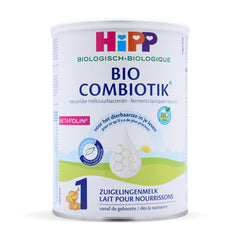
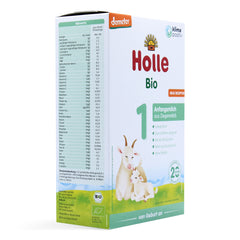
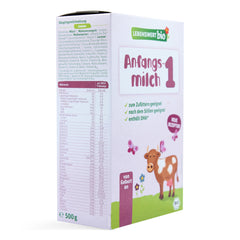
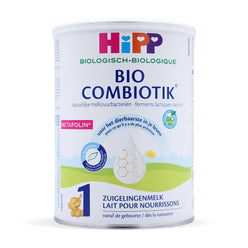
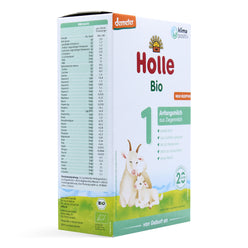
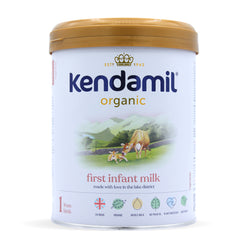

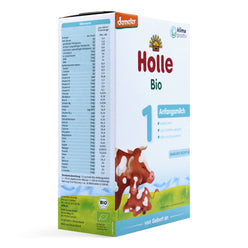






Gregg S -
I hear so many different opinions on choosing non-GMO formulas vs. regular formulas—some parents insist non-GMO makes a big difference in digestion or allergy risk, others think it’s mostly about peace of mind. What do you think? Has anyone switched from a regular formula to a non-GMO organic brand like HiPP, Holle, or Kendamil, and saw real changes (less spit-up, fewer reactions, better growth)? I’d love to hear from those who weighed the extra cost and availability against the benefits for their baby.
Marjorie Ireland -
Could you go into more detail about how ingredient testing works to ensure a baby formula is truly non-GMO? I’d love to understand what types of testing—like DNA analysis or other methods—are typically used to verify ingredients are non-genetically modified. How rigorous is the methodology, and how often is it conducted during production? Could you also explain how sourcing plays into it—what documentation or supplier standards are required for non-GMO certification? Additionally, I’m curious about how regulatory labeling thresholds for GMOs are enforced—what counts as “non-GMO” in practice? Does the process differ significantly between formulas labeled non-GMO versus those that are also certified organic? Overall, any insight into the behind-the-scenes of how non-GMO assurances are maintained would be incredibly helpful.
Marquita Parr -
One trick that worked for me was always double-checking the label to ensure the formula didn’t include hidden GMOs like corn or soy—even if it claimed “non-GMO,” I looked for organic certification to be doubly sure. This gave me peace of mind and helped reduce worry about potential additives my baby could react to. I also found that choosing formulas labeled non-GMO and free from unnecessary sweeteners like corn syrup made feeding time smoother. Reading ingredient lists carefully helped me avoid products with palm oil or artificial preservatives that could upset my baby’s sensitive digestive system. Another tip: I rotated between trusted non-GMO options based on stage and availability—this flexibility kept us from being stuck if one brand was out of stock. Plus, I kept a small stash of a familiar non-GMO formula at home for emergencies or travel—having a backup saved me a lot of stress late at night. Maybe this routine of label-reading, ingredient awareness, and backup planning could help someone else feel more confident and calm during feeding.